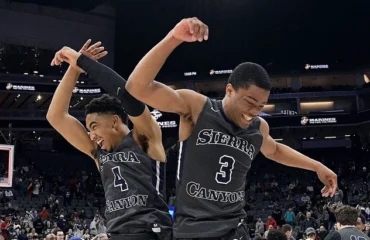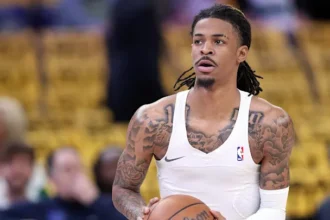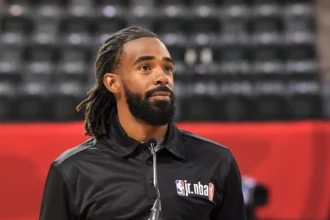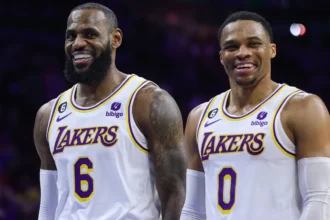The Philadelphia 76ers continued their offseason spending spree by re-signing forward KJ Martin to a two-year, $16 million contract, according to ESPN’s Adrian Wojnarowski. This deal pushes the team well over the NBA’s $170.8 million luxury-tax threshold and close to the $178.1 million first apron, though they remain below the $188.9 million second apron.
If the size of Martin’s contract seems surprising, it’s due to the NBA’s new collective bargaining agreement. Previously, teams above a single apron threshold could take back 125% of the salary they sent out in trades, plus $100,000. Under the current CBA, teams above the first apron can’t take back more salary than they send out.
This strategy explains why the Sixers signed Martin to this particular contract; essentially, he’s a human trade exception.
After signing Paul George to a four-year, $211.6 million maximum contract, the Sixers have a top-heavy payroll. George, Joel Embiid, and Tyrese Maxey all have max deals, earning at least $35 million each this season. Caleb Martin is the next highest-paid at $8.1 million, followed by Kelly Oubre Jr. at $8.0 million. These are the only other Sixers making more than $5 million this season, which would have posed issues for matching salaries in trades.
Martin now provides the Sixers with a legitimate backup power forward and an $8 million midseason trade asset. His full contract details aren’t out yet, but his 2025-26 salary is likely non-guaranteed, similar to Josh Okogie’s deal with the Phoenix Suns. League sources told Michael Scotto of HoopsHype that the Suns structured Okogie’s contract as a potential trade chip, a strategy the Sixers seem to have emulated with Martin.
Currently, the Sixers aren’t hard-capped at either apron, but they wouldn’t be able to take back more salary than they send out in a trade if they finish above the first apron. If they exceed the second apron, they can’t aggregate contracts unless the deal brings them below the second apron.
The Sixers are sufficiently below the second apron this season, allowing them to aggregate contracts in midseason deals. However, Martin’s contract might not be enough to acquire top trade targets. For example, to match the Brooklyn Nets forward Dorian Finney-Smith’s $14.9 million cap hit, the Sixers would need to include other non-minimum contracts or multiple minimum contracts.
Therefore, the Sixers might focus on players earning $12-13 million or less, such as Kelly Olynyk, Brandon Clarke, Larry Nance Jr., and Royce O’Neale. Cheaper alternatives include Cody Martin, Kenrich Williams, Saddiq Bey, and Corey Kispert.
With up to four first-round picks available for trades, the Sixers appear to be in an all-in mode after signing George. They’ll likely be active at the trade deadline to address their needs. Martin can contribute minutes in the first half of the season while they finalize their roster.
If they don’t trade Martin, the Sixers will increase their luxury-tax bill by over $10 million, a risk they’re willing to take given their urgent title ambitions. By signing Martin to a short-term deal despite the tax implications, the Sixers demonstrated their immediate focus on winning. This strategic salary cap manipulation is just the latest example of their aggressive approach this offseason.





